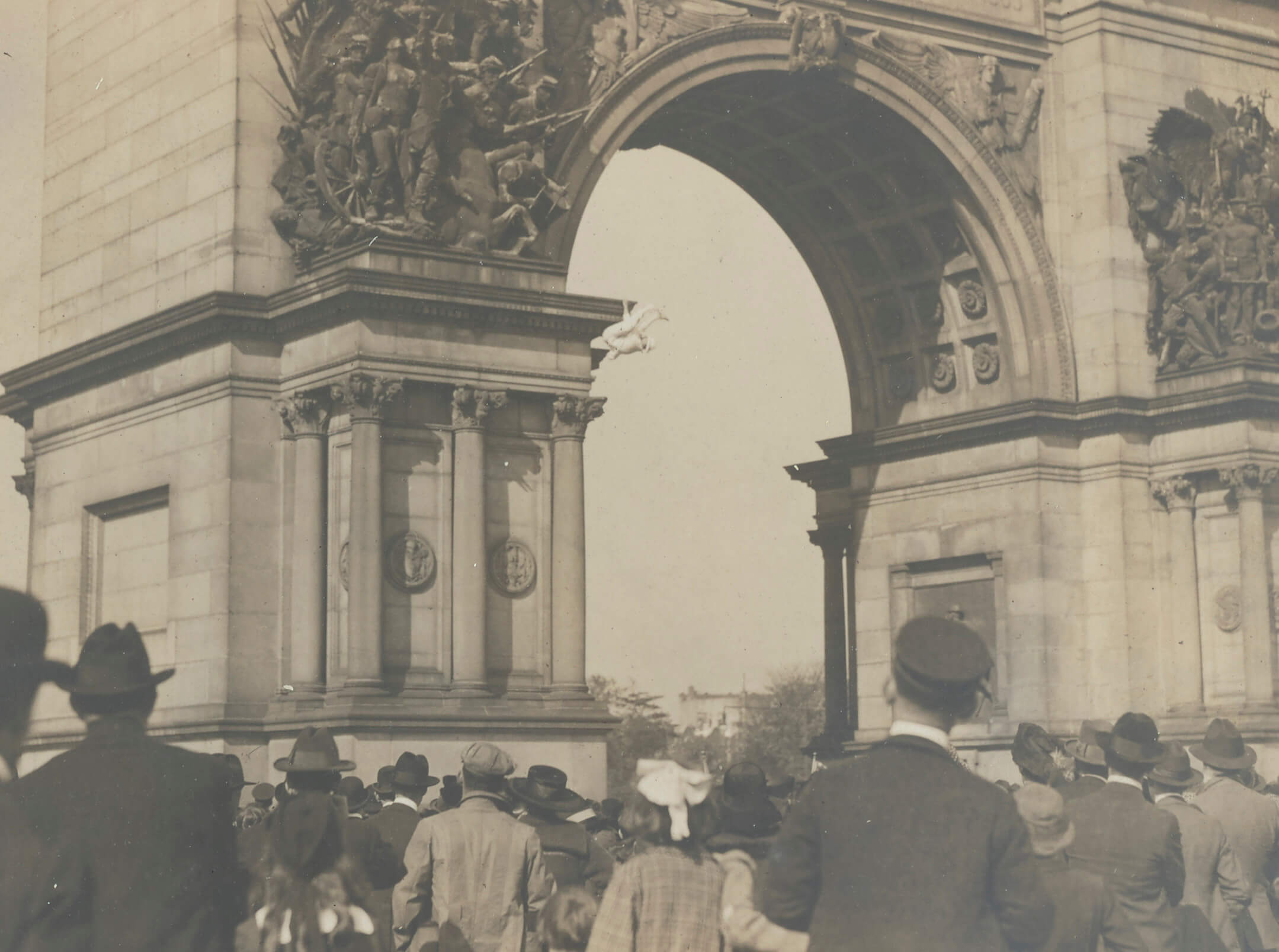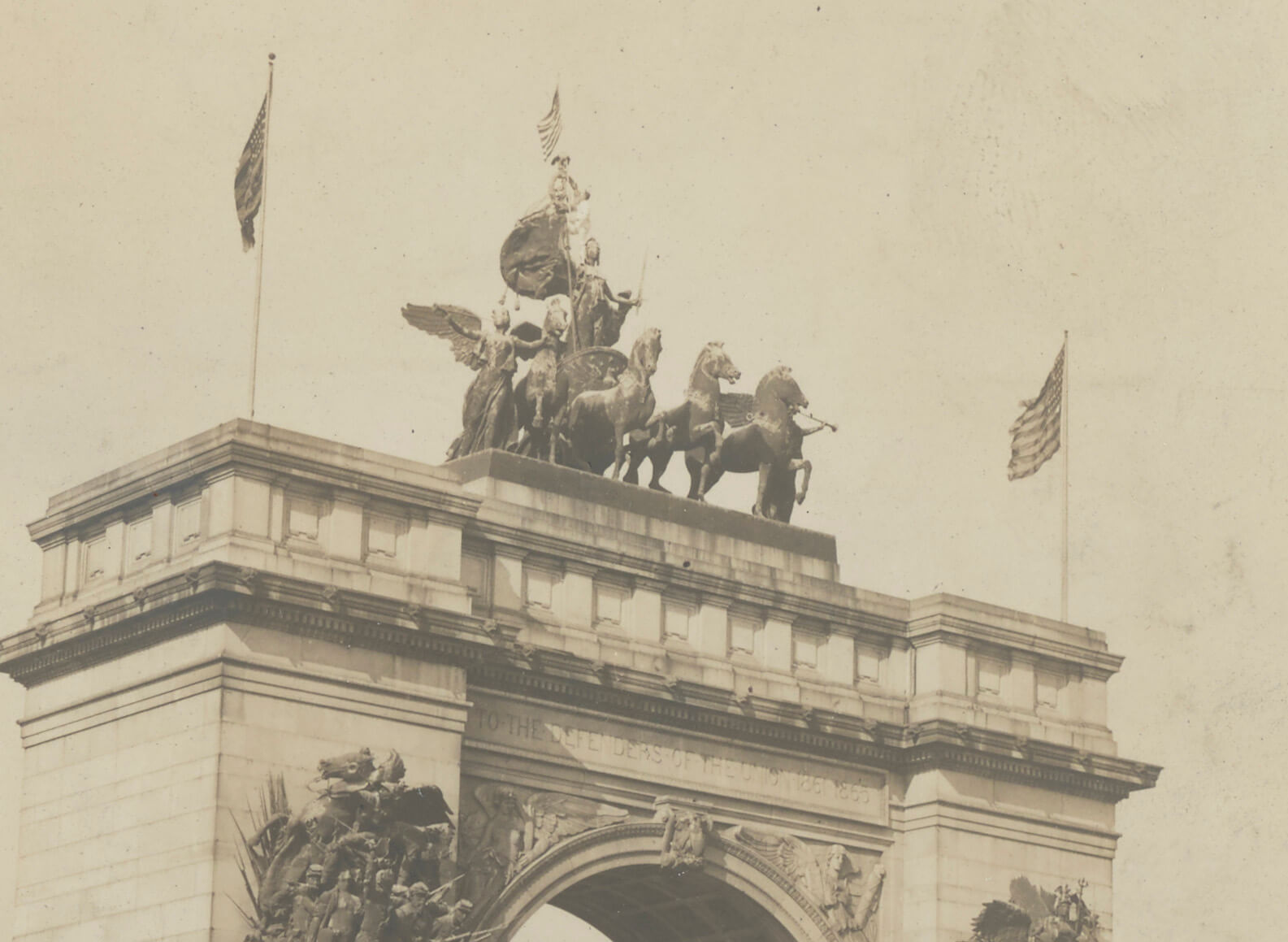A Human Fly Once Inched Up the Soldiers’ and Sailors’ Memorial Arch
On a late September afternoon in 1918, a behatted gentleman dressed all in white began inching his way up the Soldiers’ and Sailors’ Memorial Arch while a crowd of onlookers gazed up at his antics from Grand Army Plaza.

The ‘Human Fly’ Harry Gardiner climbing up the Soldiers and Sailors Monument in 1918. Photo via the National Archives
On a late September afternoon in 1918, a behatted gentleman dressed all in white began inching his way up the Soldiers’ and Sailors’ Memorial Arch while a crowd of onlookers gazed up at his antics from Grand Army Plaza. Known as “The Human Fly,” daredevil Harry H. Gardiner safely reached the top of the arch that day, unfurling a flag and placing it on the sculptured chariot.

The ascent wasn’t a random whim, nor was the monument the only Brooklyn structure he climbed that year. Harry Gardiner launched his career as a climber around 1903, scaling buildings across the country with just his bare hands and rubber-soled shoes. In the summer and fall of 1918 he made multiple appearances in Brooklyn, amusing crowds with climbs up Borough Hall, an apartment house in Brownsville, the Brooklyn Daily Eagle building and a tower at Steeplechase Park. Most of his Brooklyn appearances were aimed at creating a spectacle to help in the sales of stamps and bonds for World War I.

This included his monument climb in Grand Army Plaza on September 28. It was part of two days of activities to launch the Fourth Liberty Loan Drive in Brooklyn. After speeches by local dignitaries, all eyes strained to catch a view of Gardiner’s ascent up the momument. The Brooklyn Daily Times had predicted thrills were in store for the crowd because of the monument’s smooth surface. No drama was reported by local press the next day, although the Daily Standard Union did say he ascended “amid the tumultuous applause” of the crowd. Once he had planted the flag, a parade of regiments from Brooklyn armories began their march.
Photographer A.J. Vorhees was on hand that day and captured Gardiner’s ascent in a handful of shots held by the National Archives. In one, the 45-year-old daredevil appears to be acrobatically swinging from one hand, surely to stir up the drama. Gardiner continued making appearances across the country until at least 1929, according to newspapers of the time, before disappearing from the public stage.
Related Stories
- The Grand Army Plaza Soldiers’ and Sailors’ Memorial Arch Lights Up the Night
- The History of the Soldier’s & Sailor’s Monument
- 5 Things You Probably Didn’t Know About Brooklyn’s Grand Army Plaza
Sign up for amNY’s COVID-19 newsletter to stay up to date on the latest coronavirus news throughout New York City. Email tips@brownstoner.com with further comments, questions or tips. Follow Brownstoner on Twitter and Instagram, and like us on Facebook.









What's Your Take? Leave a Comment